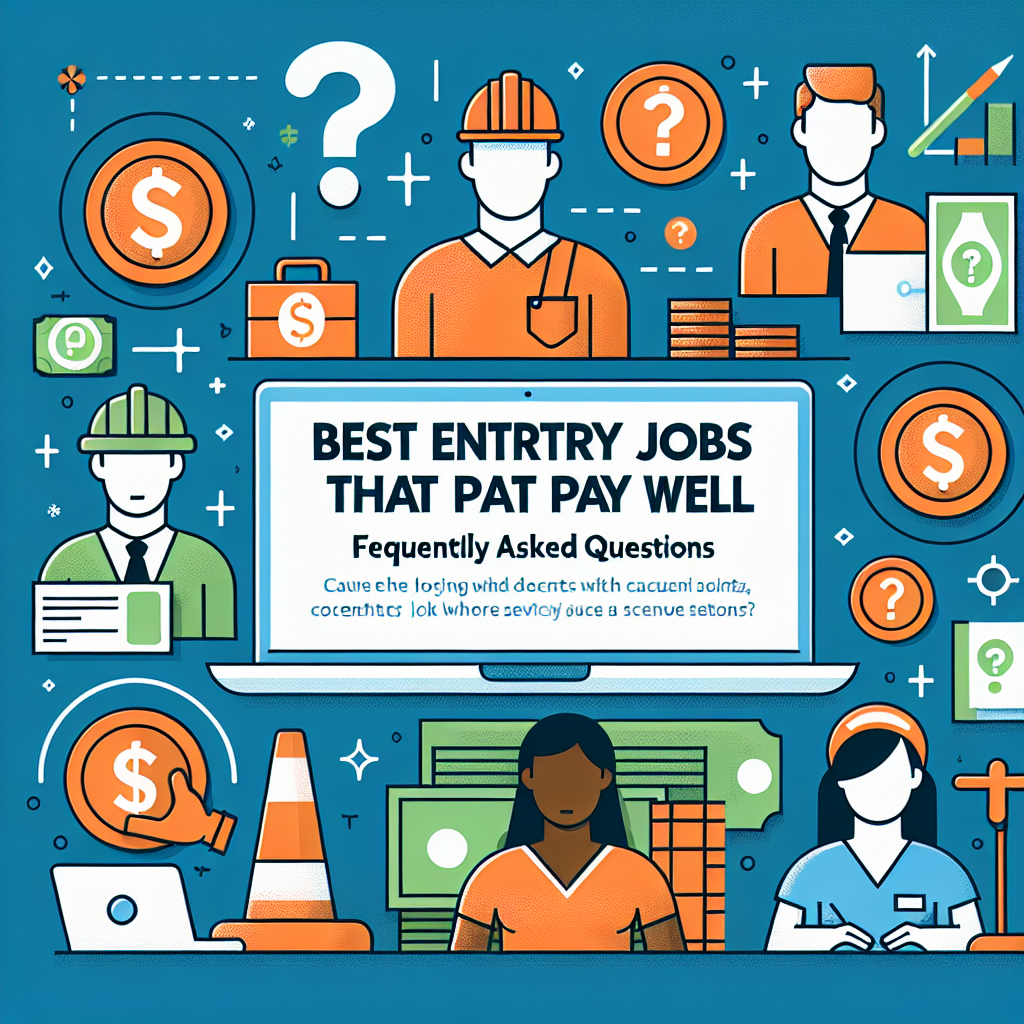Starting a career can feel overwhelming, but targeted information makes the path clearer. Best Entry Level Jobs That Pay Well: Frequently Asked Questions is a compact guide to help early-career job seekers understand which roles offer competitive starting pay, the skills employers want, and how to prioritize opportunities as you begin your professional journey.
Why some entry-level roles pay better than others
Not all entry-level positions are created equal. Pay differences often reflect industry demand, the technical skill required, geographic cost of living, and how quickly employers expect new hires to be productive. Jobs in technology, healthcare, engineering, and certain business functions frequently start with higher salaries because they require specialized training or certifications that are scarce relative to demand.
Top entry-level jobs with strong pay
Below are several categories of entry-level positions that commonly offer higher starting compensation. Many of these roles also have clear advancement paths and strong employer investment in training.
- Software Developer / Junior Engineer — early coding roles in web, mobile, and backend development.
- Registered Nurse (RN) — clinical roles that require licensing but offer stable, above-average starting wages.
- Data Analyst / Junior Data Scientist — roles that leverage statistics and SQL/Python skills.
- Engineering Technician / Associate Engineer — hands-on roles across mechanical, electrical, and civil engineering.
- Sales Development Representative (tech and B2B) — commission and base pay can make total compensation attractive quickly.
- Financial Analyst / Junior Accountant — strong starting pay in corporate finance and banking hubs.
How to identify high-paying entry-level openings
When scanning job boards or company postings, look beyond title and check listed salary ranges, required qualifications, and benefits. Employers that list competitive sign-on bonuses, tuition reimbursement, or rapid promotion tracks are often investing more in early-career talent. For college students and recent grads, targeted resources can help locate those openings — for example, a comprehensive guide to job boards for college students in the USA — free and paid options describes where to find student-friendly listings and niche boards that often advertise higher-paying roles.
Skills that boost starting pay
Employers pay more to new hires who can contribute quickly. Consider developing:
- Technical skills: coding, data analysis, CAD tools, or lab techniques relevant to your field.
- Certifications: examples include CompTIA, AWS Cloud Practitioner, Certified Nursing Assistant (CNA) as a step toward RN, or CPA prep courses for accounting.
- Soft skills: communication, project coordination, and client-facing abilities can differentiate you for roles with higher pay and growth potential.
Negotiating your first offer
Even at entry level, negotiation matters. Research typical starting salaries for the role and location using reputable sources, present any internships or projects that demonstrate readiness, and consider negotiating for non-salary items (signing bonus, remote work days, or professional development funds) when base pay is non-negotiable.
Where to find reliable salary and job outlook information
For authoritative labor market data and occupational outlooks, consult government resources such as the BLS Occupational Outlook Handbook. These pages provide median pay, projected growth, and typical entry requirements for hundreds of occupations, helping you evaluate which entry-level jobs are likely to remain in demand.
Balancing pay with long-term career fit
High starting pay is attractive, but consider whether a role aligns with your interests and development goals. Jobs that offer mentorship, a clear learning curve, and opportunities for promotion can yield larger lifetime earnings than a slightly higher starting salary in a dead-end role.
- Look for roles that offer on-the-job training and clear promotion pathways.
- Evaluate company culture and turnover — low churn often indicates better long-term prospects.
- Prioritize experiences that build transferable skills (communication, leadership, technical proficiency).
FAQ
Can I get a high-paying entry-level job without a related degree?
Yes. Many employers hire based on demonstrable skills and experience rather than degree alone. Bootcamps, internships, freelance projects, and certifications can prove competency for roles in tech, sales, and data. Networking and well-crafted portfolios also help.
How much should I expect to negotiate as a new grad?
Market variability is large, but for many entry-level roles a modest negotiation (5–10% of the initial offer) is reasonable. If salary flexibility is limited, negotiate for professional development, a signing bonus, or earlier salary review.
What resources help me find the best-paying entry-level openings?
Use targeted job boards and industry-specific sites, connect with career services, and review labor statistics such as the BLS Occupational Outlook Handbook. For college students, curated job-board guides can speed up your search; see the linked guide above for student-focused job board options.



